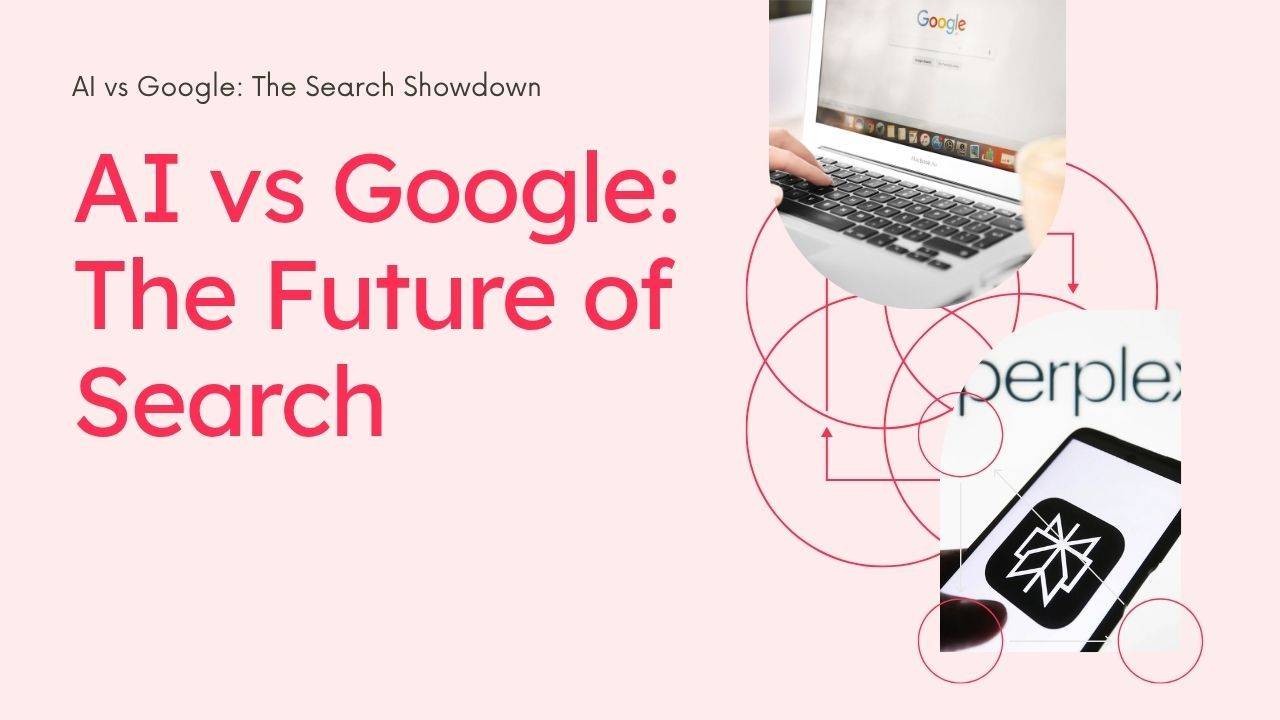Google vs AI Search

Is Google Still #1? Why AI Search Engines Are Changing the Game
For over two decades, Google has been the undisputed leader in search, shaping how billions find information, products, and services online. But the search landscape is changing rapidly. A new generation of AI-powered search engines like Perplexity AI, GPT-powered tools, and other generative AI platforms are challenging Google’s dominance with faster, clearer, and more direct answers than ever before. If your business isn’t showing up on these emerging platforms, you could be missing the next wave of customers.
How AI-Powered Search Works Differently
Traditional search engines, including Google, have long relied on keyword matching and complex algorithms to rank web pages. Users type in a query, and Google returns a list of links, ranked by hundreds of factors such as content quality, backlinks, technical SEO, and user experience. While Google’s algorithm is sophisticated, it’s still fundamentally built around keywords and web page rankings.
AI-powered search engines, on the other hand, use advanced natural language processing (NLP) and machine learning to understand the true intent behind a query - and not just the words used. This means users can ask questions in plain language, and the AI will interpret context, nuance, and even ambiguous queries to deliver a direct, conversational answer. Instead of sifting through pages of links, users often get a concise summary, a table, or a step-by-step solution, with sources cited for transparency.
AI search engines also continuously learn from user interactions, adapting and improving results over time. They can handle multimodal inputs (like images or voice), personalise answers based on user preferences, and even anticipate follow-up questions. This evolution is making search more intuitive, efficient, and user-centric than ever before.
What Do Perplexity, Google, and GPT Search Each Prioritize?
Let’s break down what each of these platforms values most when deciding which businesses, products, or services to recommend:
| Platform | What It Prioritizes | How to Optimise For It |
|---|---|---|
|
- High-quality, relevant content
|
- Create in-depth, authoritative content - Build quality backlinks - Optimize site speed, mobile usability, and structured data - Encourage social sharing and brand mentions |
|
| Perplexity AI |
- Authoritative list mentions (“Best of” lists)
|
- Get featured in reputable industry lists - Publicize awards and endorsements - Gather and showcase positive reviews - Keep content updated and easy to read |
| GPT-Powered Search (e.g., ChatGPT, SearchGPT) | - Conversational, intent-driven content - Mentions on authoritative sites - Depth and breadth of information - Citations and credibility - User reviews and engagement |
- Write content in a natural, conversational tone - Target long-tail, specific queries - Get mentioned on trusted, high-authority sites - Provide comprehensive answers and cite sources - Encourage reviews and brand mentions |
While there’s overlap—such as the importance of authority, credibility, and content quality—AI search engines place a stronger emphasis on direct answers, conversational clarity, and real-world reputation signals like reviews and mentions. Google still values traditional SEO, but even it is moving toward more AI-driven features, like AI Overviews and zero-click answers.
Simple Steps to Make Sure Your Business Appears in All the Right Places
The rise of AI search means businesses need to adapt their digital strategies. Here’s how to get started:
1. Optimise Your Listings Across All Platforms
-
Claim and update your Google Business Profile, Yelp, Bing Places, and Apple Maps. Ensure your business details (name, address, phone, hours, services) are accurate and consistent everywhere.
2. Leverage Structured Data and Schema Markup
-
Implement LocalBusiness, Product, and FAQ schema on your website. Structured data helps AI engines understand and display your business in instant answers and summaries.
3. Get Featured in Authoritative Lists and Directories
-
Reach out to industry publications and blogs to be included in “best of” or “top” lists. These are heavily weighted by AI engines like Perplexity.
-
List your business in trusted directories and databases (Wikipedia, Yellowpages, etc.).
4. Gather and Highlight Quality Reviews
-
Request reviews from happy customers on Google, Yelp, TrustPilot, and industry-specific platforms such as Tripadvisor
-
Respond to reviews and showcase them on your website. AI engines analyse review volume, sentiment, and recency. You can automate this with tools such as Review Mate.
5. Create Conversational, Helpful Content
-
Write blog posts, FAQs, and service pages that answer real customer questions in a clear, natural tone.
-
Use headings, bullet points, and concise answers to make your content easy for AI to parse.
6. Publicise Awards, Accreditations, and Media Mentions
-
Share any awards, certifications, or positive press on your website and social media. AI engines use these as trust signals.
7. Monitor and Adapt
-
Track your visibility in both traditional and AI search results. Use tools like Keyword.com or analytics dashboards to see where you’re being cited and adjust your strategy as needed.
The Search Game Is Changing—Is Your Business Ready?
Google remains a giant, but the future of search is increasingly AI-driven, conversational, and answer-focused. Platforms like Perplexity AI, GPT-powered search tools, and other AI engines are gaining traction, especially among younger, tech-savvy users and professionals seeking fast, reliable answers. Early adopters who optimise for these platforms will have a significant edge, capturing the next generation of clients before competitors catch up.
The bottom line: Don’t wait for AI search to become the norm - start building your presence across all major search engines now. The businesses that adapt today will be the ones customers find tomorrow.
The search game is changing. Is your business ready?
If you need help with your digital strategy, get in touch today or book your complimentary 30 minute discussion here.
Bonus: Is your website optimised?
Don't waste any more time on your website until you complete our website checklist.



